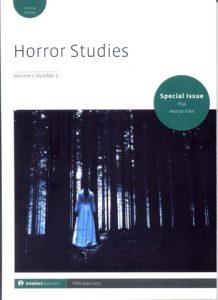2014

Horror films have played a significant role in introducing Thai cinema to international audiences and therefore inspiring Thai film-makers to produce films that could be globally marketable. Though successful with broader Thai population, Thai horror films have been repeatedly rejected by Bangkok urbanites as formulaic ‘low-class’ entertainment. The unprecedented success of Sopon Sukdapisit’s Ladda Land (2011) with Bangkok audiences reflects the recent change of direction in Thai horror to cater to the tastes of the middle classes, and invites a more thorough investigation. The article uses the example of Sukdapisit’s Ladda Land to discuss the effects of modernization and globalization processes on the development of the Thai horror genre, in particular with relation to the concept of the ghost as the figure of fear. With its reconfiguration of the typical Thai ghost story formula, Ladda Land brings horror closer to home for its middle-class audience but does so at the cost of replacing its earth-bound past-oriented revenants with the living ghosts, trapped within the temporality of a dream of social mobility and economic success.
